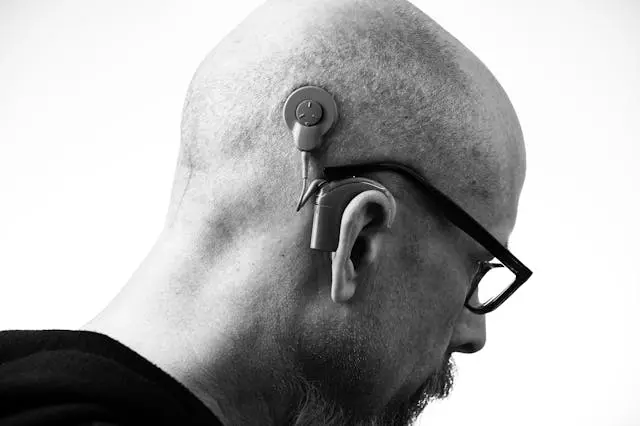What is hearing loss?
Know how hearing loss affects communication, quality of life, and available solutions to manage or treat the condition.
Hearing loss refers to a partial or total inability to hear sounds that would normally be audible. It can affect one or both ears and can range from mild to profound. There are three main types of hearing loss:

Conductive Hearing Loss
This occurs when sound waves are not efficiently conducted through the outer ear canal to the eardrum and the tiny bones (ossicles) of the middle ear. Causes can include ear infections, fluid in the middle ear, or earwax buildup.

Sensorineural Hearing Loss
This type happens due to damage to the inner ear (cochlea) or to the nerve pathways from the inner ear to the brain. Common causes include aging, exposure to loud noise, and certain medical conditions.

Mixed Hearing Loss
This is a combination of conductive and sensorineural hearing loss, indicating damage in both the outer or middle ear and the inner ear.
Symptoms of hearing loss can include difficulty understanding conversations, especially in noisy environments, frequently asking others to repeat themselves, and needing to increase the volume on electronic devices.
If you suspect you have hearing loss, it’s important to consult with a healthcare provider or audiologist for proper diagnosis and treatment options, which may include hearing aids, cochlear implants, or other interventions.
Causes of hearing loss
Hearing loss is caused by many factors, most frequently from natural aging or exposure to loud noise.
The most common causes of hearing loss are:
- Aging
- Noise exposure
- Head trauma
- Virus or disease
- Genetics
- Ototoxicity

The most common causes of hearing loss are:
- Aging
- Injury
- Excessive noise exposure
- Viral infections (such as measles or mumps)
- Shingles
- Ototoxic drugs (medications that damage hearing)
- Meningitis
- Diabetes
- Stroke
- High fever or elevated body temperature
- Ménière's disease (a disorder of the inner ear that can affect hearing and balance)
- Acoustic tumors
- Heredity
- Obesity
- Smoking
- Hypertension

Things that can cause conductive hearing loss are:
- Infections of the ear canal or middle ear resulting in fluid or pus buildup
- Perforation or scarring of the eardrum
- Wax buildup
- Dislocation of the middle ear bones (ossicles)
- Foreign object in the ear canal
- Otosclerosis (an abnormal bone growth in the middle ear)
- Abnormal growths or tumors

